
- Majors & Careers
- Online Grad School
- Preparing For Grad School
- Student Life

Top 10 Best PhD in Law Programs [2024]

A PhD in law is an advanced qualification that will make you a true legal expert. You can use that credential to work as a legal research scholar or teach at a post-secondary level. This is not only a prestigious career path but also a lucrative one — today’s law PhD holders have an average salary of $93,000.
Today’s law schools emphasize an interdisciplinary approach to legal education, equipping students to work in a diverse range of fields.
Interested in an advanced criminal justice career? Below we’ll cover the top PhD in law programs, universities, and what you need to know before pursuing a doctorate in law.
Table of Contents
Top PhD in Law Programs
Yale university, law school.

Yale University’s Law School ranks first in the nation, with its 20 legal clinics offering an immersive experience for students. This PhD program has a purely academic focus. To qualify for admission, you’ll need to already have a JD (Juris Doctor) degree. If accepted, you’ll be able to benefit from Yale Law School’s acclaimed “Yale Teaching Program.”
- Courses: Criminal law & administration, international human rights, and complex civil litigation.
- Duration: 3 years
- Delivery: On-campus
- Tuition: Fully funded
- Financial aid: Full tuition coverage, health insurance, and stipend.
- Acceptance rate: 7%
- Location: New Haven, Connecticut
Stanford University
Doctor of the Science of Law (JSD)

Stanford University is another highly acclaimed institution in the field of law education with a tough admissions process. Only a few exceptionally gifted students with an international JD or LLB or a SPILS (Stanford Program in International Legal Studies) qualification are accepted into this program every year. The program has an emphasis on an interdisciplinary approach to law.
- Courses: Advanced antitrust, current issues in business law, and reinventing American criminal justice systems.
- Credits: 44 units
- Duration: 4 years
- Tuition : $64,350 per year
- Financial aid: Scholarships, fellowships, grants, assistantships, federal work-study, and loans.
- Acceptance rate: 5%
- Location: Stanford, California
The University of Chicago, The Law School
Doctor of Jurisprudence (JSD)

The Law School of the University of Chicago is renowned for its interdisciplinary approach to teaching and cross-lists its courses with other departments. The faculty include philosophers, political scientists, historians, and law scholars. Students also have the option to pursue a Doctorate in Comparative Law (D.Comp.L.) instead of a JSD if they wish.
- Courses: Antitrust & intellectual property, civil rights clinic: police accountability, and American legal history.
- Duration: 5 years
- Tuition : $7,647 per year
- Financial aid: Full tuition scholarship, fellowship, and health insurance.
- Acceptance rate: 7%
- Location: Chicago, Illinois
Columbia University, Law School
JSD Program

The Columbia Law School emphasizes experiential learning with law clinics, moot courts, and externships, offering opportunities for innovative education and valuable intellectual exchange. Students can conduct independent research with the help of their faculty advisors and they need to submit a DPR (Dissertation Progress Report) at the end of each year.
- Courses: Intellectual property & technology, international & comparative law, and law of the workplace.
- Duration: 5-6 years
- Tuition : $75,572 per year
- Financial aid: Grants, loans, and first child allowance.
- Location: New York City, New York
Harvard University, Law School
Doctor of Juridical Science (SJD)

Harvard University is one of the world’s most famous centers for education, and its Law School is equally renowned. The school has a unique grading system that uses the classifications honors, pass, low-pass, and fail. This flexible SJD program allows students to design their own study plan and choose faculty supervisors for independent research.
- Courses: Advanced comparative perspectives on US law, environmental justice, and strategic litigation & immigration advocacy.
- Duration: 4 years
- Delivery: On-campus
- Tuition : $67,720 per year
- Financial aid: Scholarships, grants, and loans.
- Location: Cambridge, Massachusetts
The University of Pennsylvania, Carey Law School
Doctor of Science of Law (SJD)

Carey Law School’s curricula cut across disciplinary and international lines to create law experts in every field, including business, health, technology, education, and social work. For admission to the Carey Law School PhD, you must already hold an LLM or JD from the same school or an institution of similar standing.
- Courses: Privacy & racial justice, appellate advocacy, and disability law.
- Tuition : Refer tuition page
- Financial aid: Full tuition, stipend, health insurance, and scholarships.
- Acceptance rate: 9%
- Location: Philadelphia, Pennsylvania
The University of Arizona, James E. Rogers College of Law

The University of Arizona’s James E. Rogers College of Law is one of the country’s most affordable top-tier law schools. This PhD law degree offers the choice of two concentrations: International Trade & Business Law, and Indigenous Peoples Law & Policy.
- Courses: International business & investment structuring, federal Indian law, and trusts & estates.
- Duration: 3-5 years
- Tuition and fees : $26,000 per year
- Financial aid: Scholarships, federal work-study, loans, veteran benefits, and fellowships.
- Acceptance rate: 85%
- Location: Tucson, Arizona
The University of Texas at Dallas, School of Economic, Political, and Policy Sciences
Doctor of Philosophy in Criminology

The University of Texas’ School of Economic, Political, and Policy Sciences creates professionals capable of dealing with modern issues like risk management, political violence, social inequality, healthcare, and international trade & conflict resolution. You’ll need a bachelor’s in criminology or a related discipline to apply for this PhD in criminology.
- Courses: Advances in criminology theory, evidence-based crime prevention, and regression & multivariate analysis.
- Credits: 75 semester credit hours
- Financial aid: Scholarships, grants, and loans.
- Acceptance rate: 79%
- Location: Richardson, Texas
Abraham Lincoln University, School of Law
Juris Doctor (JD)

This school was founded with to provide affordable education to working professionals who cannot attend regular law school. This doctorate in law is a flexible JD degree that can be completed entirely online through the university’s high-level education technology.
- Courses: Criminal law, civil procedure, and wills & trusts.
- Delivery: Online
- Tuition : $10,100 per year
- Acceptance rate: 90.3%
- Location: Glendale, California
Walden University
Online PhD in Criminal Justice

Walden University aims to help working professionals pursue advanced degrees and has been ranked #1 in research doctorates for African-American students. This program was one of the first online doctorates in criminal justice and allows students to explore national and international issues in criminal justice administration with a dual emphasis on contemporary theory and practice.
- Courses: History & contemporary issues in criminal justice, policy & analysis in criminal justice systems, and research theory, design & methods.
- Credits: 77 quarter credits
- Tuition : $636 per quarter hour
- Financial aid: Grants, scholarships, loans, and veteran benefits.
- Acceptance rate: 100%
- Location: Minneapolis, Minnesota
What Do You Need to Get a PhD in Law?
The exact requirements vary depending on the program, but you’ll typically need a LLB, LLM, or JD as a basic prerequisite.
As part of the admission process, you usually need to submit:
- Academic transcripts from previous studies
- Personal essay and/or research proposal
- Recommendation letters
To earn your doctorate, you’ll have to complete coursework, qualifying examinations, and usually a dissertation to a high standard.
Preparing for a Law Doctorate Program
The best PhD in legal studies programs are competitive, so it’s important to start preparing early. Keep up to date on developments in the field and research the best universities that offer your preferred specialization.
Look into leading faculty members in your areas of interest, and network by joining relevant professional communities. Once you’ve decided on your dream program, check admission requirements to prepare the strongest possible application.
Things to Consider When Choosing a Law PhD Program
Choosing the best law PhD program will depend on a range of factors, including your passions and interests. However, there are a few general factors that are essential for everyone deciding on a law school for their PhD to consider:
- Location: First, a school close by could save you on accommodation costs. But that’s not the only location consideration. You should look at your school destination for evidence of a booming legal or education industry. For example, New York is a hub for business, while Boston is known as a center for technology.
- Cost and funding: Ensure the program costs align with your budget and explore financial aid opportunities.
- Specialization: Some schools offer unique specializations like social justice, law and economics, and international law. Choose a program with a focus on your preferred specialization.
- Faculty: The university’s reputation is important, but its faculty credentials are equally critical. Explore faculty backgrounds by researching published papers and social media profiles like LinkedIn.
- Class sizes: Smaller class sizes mean better one-on-one attention; however, a larger cohort offers better networking opportunities.
- Placement support: What happens after graduation? Are you on the hook for finding a job on your own, or does the school offer placement options? Find out where alumni are employed to get an idea.
Why Get a Doctorate in Law?
A doctorate degree in law will allow you to pursue roles in the legal field as a scholar, researcher, or academic, and build a worthwhile career.
Several candidates apply for admission to PhD in jurisprudence programs every academic year, but top law schools have low acceptance rates, and only a few are accepted. For example, Harvard only has around 70 SJD students while hundreds or thousands may apply. Therefore, with this qualification, you’ll belong to an exclusive group of in-demand professionals.
Jobs for PhD in Law Degree Holders
Here are some common roles for PhD holders in law with the average annual salaries for each:
- General Counsel ($170,183 )
- Staff Attorney ($71,106 )
- Professor of Law ( $131,926 )
- Project Manager ( $76,264 )
- Senior Research Associate ( $75,029 )
Course Costs
The cost greatly depends on where you study, but prestigious law schools can charge annual tuition of around $65,000. Once you factor in living expenses, books, and facility fees, the total cost can add up to around $100,000 a year. However, you can find programs with tuition and fees for as little as $7,500 a year. Moreover, most top institutions offer full-tuition scholarships, stipends, and similar financial aid that cover almost all of your expenses.
Course Length
Typically, a PhD in law takes 3-5 years to complete. However, most programs will give you extra time to complete your doctorate if needed.
Skills You’ll Gain through a PhD in Law
Aside from giving you in-depth and expansive legal knowledge, PhD in law programs can also help you develop the following skills:
- Communication
- Presentation
- Critical Thinking
- Project Management
- Problem Solving
Key Takeaways
A PhD in law is an excellent choice for legal professionals seeking a career in research or academia. While a JD or Juris Doctor is equivalent to a PhD, the former equips you to become a law practitioner.
On the other hand, if you want to teach at a post-secondary level or conduct further legal research, you will need a PhD. Prepare early and choose a program that will best help you to achieve your career goals.
For more law education advice, take a look at our guide on the best master’s in criminal justice programs , or weigh up your options with the highest-paying PhDs .
PhD in Law FAQs
What is a phd in law called.
A PhD in law is usually called a Doctor of Law or Doctor of Laws. Some universities offer a JD (Juris Doctor or Doctor of Jurisprudence) degree, while others offer SJD (Doctor of Juridical Science) or JSD (Doctor of Science in Jurisprudence) programs.
Is a PhD in Law the Same as a JD?
A JD (Juris Doctor) degree is suitable for anyone who wants to practice as a licensed legal professional. These programs usually take three years to complete and are mostly coursework-focused.
On the other hand, a PhD in law may take 5-6 years to complete and usually involves a dissertation or major research project. If your aim is professional research or a job in academia in the discipline rather than practicing law, a PhD is better for you.
What is the Highest Degree in Law?
A PhD in law is generally considered the most advanced law degree. While some universities call it by other names, such as SJD (Doctor of Juridical Science) or JSD (Doctor of Jurisprudence degree), this is essentially the same thing.
How Long is a PhD in Law?
PhD Law programs typically take 3-5 years to complete. You may take longer for individual reasons, such as if you choose to study part-time.
What Does a PhD in Law Do?
A PhD in law will equip you to work in legal research or academia.

Lisa Marlin
Lisa is a full-time writer specializing in career advice, further education, and personal development. She works from all over the world, and when not writing you'll find her hiking, practicing yoga, or enjoying a glass of Malbec.
- Lisa Marlin https://blog.thegradcafe.com/author/lisa-marlin/ ACBSP Vs AACSB: Which Business Program Accreditations is Better?
- Lisa Marlin https://blog.thegradcafe.com/author/lisa-marlin/ BA vs BS: What You Need to Know [2024 Guide]
- Lisa Marlin https://blog.thegradcafe.com/author/lisa-marlin/ The 19 Best MBA Scholarships to Apply for [2024-2025]
- Lisa Marlin https://blog.thegradcafe.com/author/lisa-marlin/ 25 Best Gifts for Law Students for 2024
Top 12 Best Laptops for Graduate Students in 2024
Top 10 best phd in theology programs [2024], related posts.

- 73% of job seekers believe a degree is needed for a well-paying role–but is it?

Tech Talent Crunch: Cities with More Jobs Than Workers

The Most Under-Rated Career Advancement Tip for 2024

Top 5 Best Psychology PhD Programs in 2024

Good News For Early Careers: Skills-Based Hiring is Surging

These Are The Best States To Start Your Tech Career

Leave a Reply Cancel reply
Your email address will not be published. Required fields are marked *
Save my name, email, and website in this browser for the next time I comment.
Recent Posts
- Is a Master’s Degree Worth It? [2024 Guide]
- Graduate Certificate vs Degree: What’s the Difference? [2024 Guide]
- ACBSP Vs AACSB: Which Business Program Accreditations is Better?
- What is a Good GRE Score?

© 2024 TheGradCafe.com All rights reserved
- Partner With Us
- Results Search
- Submit Your Results
- Write For Us

The Juris Doctor (J.D.) is a three-year program that first gives students the intellectual foundations for legal study, and then gives them the opportunity to focus their studies on areas of particular interest through advanced classes, clinics, and writing projects.
The Master of Laws (LL.M.) is a one-year advanced degree program for students who have already received their first law degrees. It attracts intellectually curious candidates of diverse backgrounds from 65+ countries, including lawyers working at firms or NGOs, government officials, law teachers, judges, activists, doctoral students, entrepreneurs, diplomats, and others.
Harvard Law School’s most advanced law degree, the Doctor of Juridical Science (S.J.D.) is modeled on the very best Ph.D. programs in other disciplines, and is designed for aspiring legal academics who, through sustained independent study, research and writing, work to produce a dissertation that constitutes a substantial and valuable contribution to legal scholarship.
Students interested in combining legal education with advanced training in a field not covered by one of the Law School’s formal joint degree programs can consider completing the J.D. program concurrently with another graduate degree program at Harvard University or another institution. In the past, students have arranged concurrent degree programs with the Harvard Graduate School of Arts and Sciences, the Harvard Divinity School, the Fletcher School of Law and Diplomacy at Tufts University, and the Massachusetts Institute of Technology.
J.D./Ph.D. Degree Options
This website uses cookies.
We use cookies to ensure that we give you the best experience on our website. If you continue to use this site we will assume that you are happy with it.
Doctoral Programs

The PhD in Law program prepares students who have earned a JD from an American Bar Association accredited law school to enter law teaching or other careers that require a scholarly mastery of law. The program is designed to provide a broad foundation in the canonical texts and methods of legal scholarship and to support students in producing original scholarship in the form of a dissertation. The program strongly encourages, but does not require, interdisciplinary approaches to the study of law.
- Programs of Study
- PhD - Doctor of Philosophy
- Yale Law PhD Program
Robert Post
Director of Graduate Studies
Gordon Silverstein
Assistant Dean of Graduate Programs
Thais Sobczak
Departmental Registrar
- [email protected]
- 203-432-1696
Admission Requirements
Standardized testing requirements.
GRE is not accepted.
Program-Specific Application Requirements
A writing sample and a research proposal are required by this program.
English Language Requirement
TOEFL iBT or IELTS Academic is required of most applicants whose native language is not English.
You may be exempt from this requirement if you have received (or will receive) an undergraduate degree from a college or university where English is the primary language of instruction, and if you have studied in residence at that institution for at least three years.
Academic Information
GSAS Advising Guidelines
Academic Resources
Academic calendar.
The Graduate School's academic calendar lists important dates and deadlines related to coursework, registration, financial processes, and milestone events such as graduation.
Featured Resource
Registration Information and Dates
https://registration.yale.edu/
Students must register every term in which they are enrolled in the Graduate School. Registration for a given term takes place the semester prior, and so it's important to stay on top of your academic plan. The University Registrar's Office oversees the systems that students use to register. Instructions about how to use those systems and the dates during which registration occurs can be found on their registration website.
Financial Information
Phd stipend & funding.
PhD students at Yale are normally full-funded for a minimum of five years. During that time, our students receive a twelve-month stipend to cover living expenses and a fellowship that covers the full cost of tuition and student healthcare.
- PhD Student Funding Overview
- Graduate Financial Aid Office
- PhD Stipends
- Health Award
- Tuition and Fees
Alumni Insights
Below you will find alumni placement data for our departments and programs.
- Graduate School
- CAMBRIDGE, MA
- Rating 4.33 out of 5 9 reviews
Doctoral programs
All doctoral programs offered, legal studies, advanced legal research, similar grad schools.
- The Catholic University of America
- WASHINGTON, DC
- William & Mary
- WILLIAMSBURG, VA
- Rating 4.67 out of 5 3 reviews
- University of Minnesota Twin Cities
- MINNEAPOLIS, MN
- Duquesne University
- PITTSBURGH, PA
- Rating 4.33 out of 5 3 reviews

Law and Philosophy
The philosophical underpinnings and implications of law have been a central concern for as long as there has been law. Ultimately, law is a system of rules to regulate society, and the goodness or badness of any rule must be judged by its success in promoting a more just society.
Not surprisingly, then, what justice requires in a given sphere of activity and what set of rules will best achieve it are foundational questions in virtually every area of law—questions answered by scholars exploring the intersection of law and philosophy. In the past century, legal philosophers have made major contributions in areas as diverse as the justification for criminal punishment; the meaning of consent in private contracts; the moral basis of private property rights; distributive justice in tax regimes, the welfare state, eminent domain and allocation of citizenship rights; a rights-based versus welfarist account of the tort system; the state’s right to regulate family relationships; the justness of preventive war; the moral basis of legislation; intergenerational justice in environmental law; biomedical ethics; and the values of free speech and democracy in campaign finance reform.
The opportunities to open up new legal questions to philosophical inquiry, as well as shed new light on old questions, are virtually limitless. In many cases, this work requires thorough grounding in both legal institutions and philosophy—and Stanford’s JD/PhD program in law and philosophy is designed to provide that foundation. Although the program may be most relevant to aspiring academics, anyone hoping to work in policy positions in fields such as biomedical ethics and environmental ethics or even tax may find this joint degree useful.
Course Requirements
As many as 54 quarter units of approved courses may be counted toward both degrees. No more than 31 quarter units of courses that originate outside the law school may count toward the law degree.
The maximum number of law school credits that may be counted toward the PhD in philosophy is the greater of: (i) 12 quarter units; or (ii) the maximum number of units from courses outside the department that PhD candidates in philosophy are permitted to count toward their degree under general departmental guidelines or in the case of a particular student’s individual program.
Stanford Philosophy Department
Note to applicants: The Knight-Hennessy Scholars program awards full funding to Stanford graduate students from all disciplines, with additional opportunities for leadership training and collaboration across fields. Joint Degree applicants are encouraged to apply to the Knight – Hennessy Scholars Program. Please be aware that the Knight-Hennessy Scholars applications are due in early Autumn one year prior to enrollment. View dates and deadlines: knight-hennessy.stanford.edu/dates-and-deadlines .
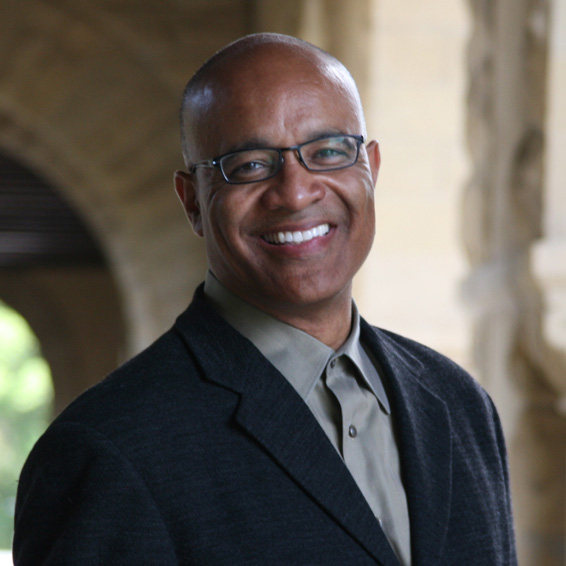
Ralph Richard Banks
- Jackson Eli Reynolds Professor of Law
- Faculty Director, Stanford Center for Racial Justice

Joshua Cohen
- Marta Sutton Weeks Professor of Ethics in Society
- Professor of Political Science, Philosophy and Law, Emeritus
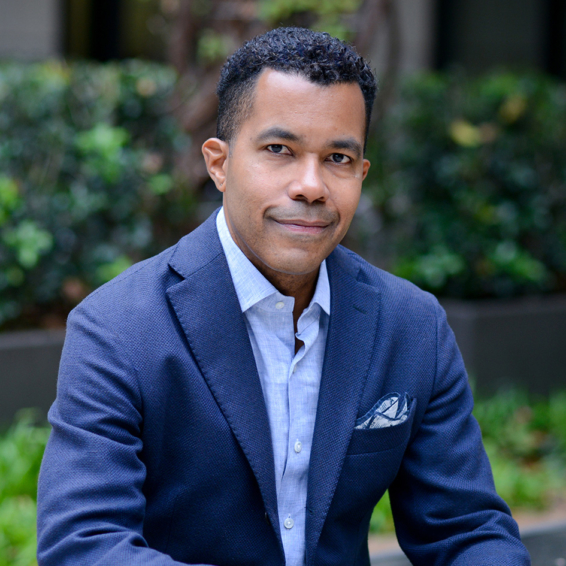
Richard Thompson Ford
- George E. Osborne Professor of Law
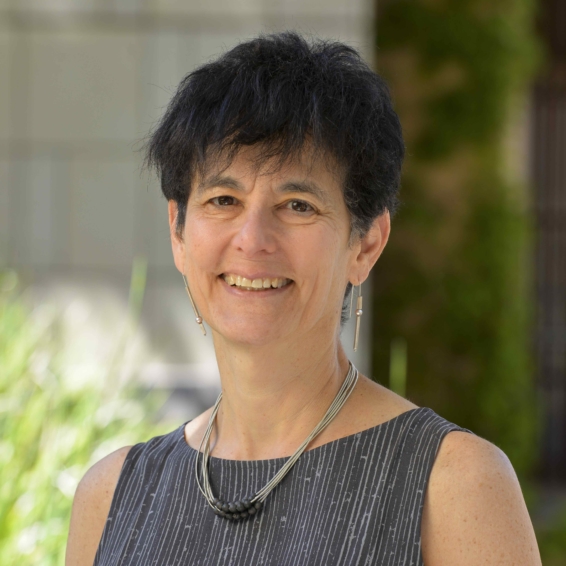
Barbara Fried
- William W. and Gertrude H. Saunders Professor of Law, Emerita

Henry T. Greely
- Deane F. and Kate Edelman Johnson Professor of Law
- Director, Center for Law and the Biosciences
- Professor, by courtesy, Genetics
- Chair, Steering Committee of the Center for Biomedical Ethics
- Director, Stanford Program in Neuroscience and Society

Mark G. Kelman
- James C. Gaither Professor of Law

Deborah L. Rhode
- Ernest W. McFarland Professor of Law
- Director, Center on the Legal Profession

Norman W. Spaulding
- Nelson Bowman Sweitzer and Marie B. Sweitzer Professor of Law

Barton Thompson
- Robert E. Paradise Professor of Natural Resources Law
- Senior Fellow, Woods Institute for the Environment
- Professor, Doerr School of Sustainability

Allen S. Weiner
- Senior Lecturer in Law
- Director, Stanford Program in International and Comparative Law
- Director, Stanford Humanitarian Program
- Director, Stanford Center on International Conflict and Negotiation

Robert Weisberg
- Edwin E. Huddleson, Jr. Professor of Law
- Faculty Co-Director, Stanford Criminal Justice Center
Ph.D. Program in Law & Economics
- Student Profiles
Program Overview
Vanderbilt Law School's Ph.D. Program in Law and Economics is unlike any other. Dual-degree students pursue a J.D. and a Ph.D. concurrently in a fully integrated curriculum that combines economic theory and methodology with the study of law. The program is designed so that students complete both degrees in just six years. Admitted students receive a full funding package , including tuition for both degrees and a competitive annual stipend, for all six years of study.
- Explore our History
About our Program
Applicants must complete separate applications to Vanderbilt Graduate School and Vanderbilt Law School. Each applicant's Law School and Graduate School applications will be considered together in a collaborative admissions process.
Program faculty guide students through an innovative law and economics curriculum in which students pursue policy-relevant research. The program offers four primary research fields: behavioral law and economics, labor markets and human resources, law and economics, and risk and environmental regulation.
Program graduates are in tenured or tenure-track positions at University of Alabama, University of Arkansas, University at Buffalo, Florida State University, George Mason University, University of Texas, Vanderbilt University, and Western Kentucky University, as well as in positions in government, legal practice, and consulting.
The Law & Economics/Applied Microeconomics Seminar Series brings scholars from around the world to Vanderbilt to present research spanning a variety of fields and topics. The program also hosts a variety of conferences, including the biennial Frontiers in Law and Economics (FILE) conference.
Application Closed for Fall 2024
- How to Apply
August 15, 2024
Applications open for Fall 2025
January 15, 2025
Deadline for priority consideration
April 1, 2025
Final deadline
In the News
Have questions.
Contact the Ph.D. in Law & Economics Program Manager.

Graduate Programs
Students from all over the world come to Yale Law School to deepen their understanding of the law.
Yale Law School’s graduate programs are truly global — both in the breadth of resources available through Yale Law School and in the composition of our student body. Students enjoy small class sizes and the camaraderie of graduate and J.D. students, the intimacy of a small program, and a close relationship with the Yale Law School faculty .
The Law School admits a limited number of graduate students each year to pursue studies in law beyond the first professional degree.
Graduate Degrees
The Master of Laws (LL.M.) program encompasses one year of full-time study. Admission is generally open only to those committed to a career in teaching law.
The Doctor of the Science of Law (J.S.D.) program is a select doctoral program open only to graduates of the LL.M. program at Yale Law School.
The Law School also offers a Master of Studies in Law (M.S.L.) program for a small number of non-lawyers who wish to obtain a basic familiarity with legal thought and to explore how law relates to their discipline. It is a one-year terminal program designed for those who do not desire a professional law degree. Admission is generally open only to doctoral degree holders and doctoral candidates in fields other than law, or working journalists (with at least a bachelor's degree).
The Ph.D. in Law is a doctoral program offered in conjunction with Yale University's Graduate School of Arts and Sciences . It is designed to prepare J.D. graduates for careers as legal scholars and teachers through coursework and the production of a substantial body of original academic research and writing. The program is only open to students who have already earned a J.D. from an accredited U.S. law school.
Other Programs
Learn more about the Visiting Researcher Program and Joint Degree Programs .
Contact the Graduate Programs Office .
Section Menu
Mail: Graduate Programs Office
Yale Law School
PO Box 208215
New Haven, CT 06520-8215
- Gordon Silverstein, Assistant Dean for Graduate Programs, talks about graduate programs offered at Yale Law School.
- Maria Gracia Naranjo Ponce ’22 LLM on the intellectually rigorous international community of the LL.M. program.
- Akriti Gaur ’22 LLM shares her perspective on the L.L.M. program
Graduate Programs Class of 2023
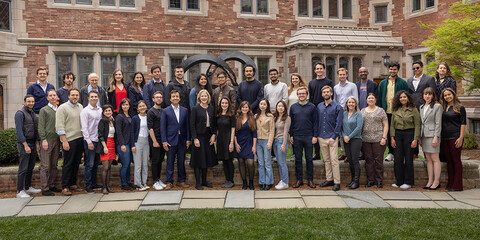
Take a Virtual Tour of YLS
Explore our campus and learn more about academics, student life, clinics, admissions, financial aid, and more.
Student Profile Videos
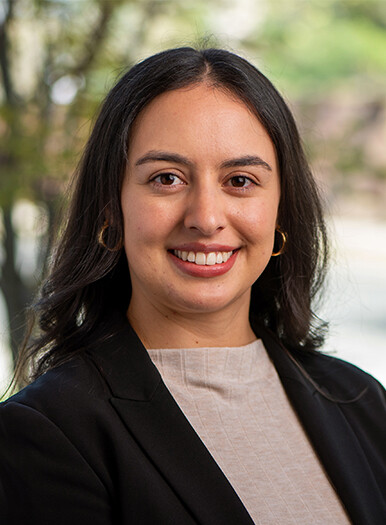
Maria Gracia Naranjo Ponce ’22 LLM
A perspective on the intellectual international community of the LL.M. program, and how she developed her research ideas on tax law.
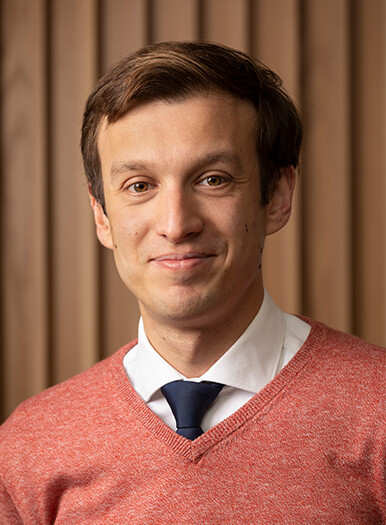
Alexander Komarov LLM
A student perspective on criminal law, financial aid, and getting an LL.M. at Yale Law School.
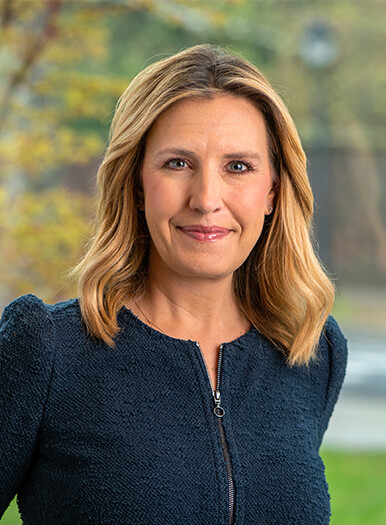
Poppy Harlow ’22 MSL
A perspective on the M.S.L. program and what it was like to dive into the study of constitutional law, civil procedure, and criminal law as a journalist.
Most people think there is a giant gap between doing academic work and doing real practice work. This law school has relentlessly refused to accept that gap. And you see it every day.

- Schools & departments

Awards: PhD
Study modes: Full-time, Part-time
Funding opportunities
Programme website: Law
Discovery Day
Join us online on 18th April to learn more about postgraduate study at Edinburgh
View sessions and register
Research profile
The Edinburgh Law School is a vibrant, collegial and enriching community of legal, sociolegal and criminology researchers and offers an excellent setting for doctoral research.
Edinburgh Law School is ranked 3rd in the UK for law for the quality and breadth of our research by Research Professional, based on the 2021 Research Excellence Framework (REF2021).
Our doctoral researchers are key to the School’s research activities, and we work hard to ensure that they are fully engaged with staff and projects across all of our legal disciplines.
You will find opportunities in the following fields:
- company and commercial law
- comparative law
- constitutional and administrative law
- criminal law
- criminology and criminal justice
- environmental law
- European law, policy and institutions
- European private law
- evidence and procedure
- gender and sexuality
- human rights law
- information technology law
- intellectual property law
- international law
- legal theory
- medical law and ethics
- obligations
- contract delict
- unjustified enrichment
- property, trusts and successions
- Roman law and legal history
- socio-legal studies
Programme structure
Find out more about compulsory and optional courses.
We link to the latest information available. Please note that this may be for a previous academic year and should be considered indicative.
Training and support
Doctoral researchers enjoy full access to the University’s research skills training which the Law School complements with a tailored research and wider skills programme.
The training programme in Year One (six seminars) includes workshops on research design, writing and research ethics.
The focus of the training programme in Year Two and Three is on supporting the dissemination of work with opportunities to present work.
Opportunities are also available for research exchanges through the League of European Research (LERU) network, as well as an annual research training exchange programme with KU Leuven.
- Find out more about the training and support available
Doctoral researchers are able to draw upon a fantastic range of resources and facilities to support their research.
The Law School has one of the most significant academic law libraries in the UK which offers outstanding digital resources alongside a world-leading print collection (almost 60,000 items including a unique collection for Scots law research).
You will also have access to the University’s Main Library which has one of the largest and most important collections in Britain, as well as the legal collection of the National Library of Scotland.
Career opportunities
Upon completion of the PhD, the majority of our students progress to postdoctoral research or lecturing and teaching roles.
Recent graduates have also found employment in roles as diverse as prison governor, solicitor and policy adviser for organisations including:
- the International Criminal Court
- Anderson Strathern
- HM Prison Service
Our PhD programme
Edinburgh Law School can offer expert supervision across an exceptional range of subject areas for PhD study.
A PhD at Edinburgh Law School involves undertaking independent research, culminating in the submission of a thesis of up to 100,000 words, which should be an original piece of work that makes a significant contribution to knowledge in the field of study and contains material worthy of publication.
As a doctoral student, you will join a diverse community of around 100 postgraduate researchers and will become an integral part of the intellectual life of the School.
- Find our more about studying for a PhD at Edinburgh Law School

Studying for a PhD video
Entry requirements.
These entry requirements are for the 2024/25 academic year and requirements for future academic years may differ. Entry requirements for the 2025/26 academic year will be published on 1 Oct 2024.
- PhD Law: a UK 2:1 honours degree in law, arts or social sciences, and a UK Masters degree with at least 60% in the taught section and 65% or more in the dissertation, or their international equivalents.
The majority of our applicants have studied law, but we are a comprehensive Law School covering a range of approaches to legal topics including social science, historical and philosophical enquiry; applications from non-law students with relevant studies and experience will be considered and if you require further guidance please contact us.
Entry to this programme is competitive. Meeting minimum requirements for consideration does not guarantee an offer of study
International qualifications
Check whether your international qualifications meet our general entry requirements:
- Entry requirements by country
- English language requirements
Regardless of your nationality or country of residence, you must demonstrate a level of English language competency at a level that will enable you to succeed in your studies.
English language tests
We accept the following English language qualifications at the grades specified:
- IELTS Academic: total 7.0 with at least 7.0 in writing and 6.5 in all other components. We do not accept IELTS One Skill Retake to meet our English language requirements.
- TOEFL-iBT (including Home Edition): total 100 with at least 25 in writing and 23 in all other components.
- C1 Advanced ( CAE ) / C2 Proficiency ( CPE ): total 185 with at least 185 in writing and 176 in all other components.
- Trinity ISE : ISE III with passes in all four components.
- PTE Academic: total 70 with at least 70 in writing and 62 in all other components.
Your English language qualification must be no more than three and a half years old from the start date of the programme you are applying to study, unless you are using IELTS , TOEFL, Trinity ISE or PTE , in which case it must be no more than two years old.
Degrees taught and assessed in English
We also accept an undergraduate or postgraduate degree that has been taught and assessed in English in a majority English speaking country, as defined by UK Visas and Immigration:
- UKVI list of majority English speaking countries
We also accept a degree that has been taught and assessed in English from a university on our list of approved universities in non-majority English speaking countries (non-MESC).
- Approved universities in non-MESC
If you are not a national of a majority English speaking country, then your degree must be no more than five years old* at the beginning of your programme of study. (*Revised 05 March 2024 to extend degree validity to five years.)
Find out more about our language requirements:
Fees and costs
Scholarships and funding, featured funding.
- School of Law funding opportunities
- Research scholarships for international students
- Principal's Career Development PhD Scholarships
UK government postgraduate loans
If you live in the UK, you may be able to apply for a postgraduate loan from one of the UK’s governments.
The type and amount of financial support you are eligible for will depend on:
- your programme
- the duration of your studies
- your tuition fee status
Programmes studied on a part-time intermittent basis are not eligible.
- UK government and other external funding
Other funding opportunities
Search for scholarships and funding opportunities:
- Search for funding
Further information
- Postgraduate Research Office
- Phone: +44 (0)131 650 2022
- Contact: [email protected]
- School of Law (Postgraduate Research Office)
- Old College
- South Bridge
- Central Campus
- Programme: Law
- School: Law
- College: Arts, Humanities & Social Sciences
Select your programme and preferred start date to begin your application.
PhD Law - 3 Years (Full-time)
Phd law - 6 years (part-time), application deadlines.
We encourage you to apply at least one month prior to entry so that we have enough time to process your application. If you are also applying for funding or will require a visa then we strongly recommend you apply as early as possible.
- How to apply
You must submit two references with your application.
Find out more about the general application process for postgraduate programmes:

Law MPhil/PhD
London, Bloomsbury
UCL Laws has one of the most selective MPhil/PhD programmes in the UK, and produces graduates of internationally recognised quality. Ranked the top UK Law institution for research quality in the most recent Research Excellence Framework (2021), UCL Laws attracts leading figures in the field to our extensive programme of events, informing debate on critical legal issues.
UK tuition fees (2024/25)
Overseas tuition fees (2024/25), programme starts, applications accepted.
Applications closed
- Entry requirements
A minimum of a good upper second-class UK Bachelor's degree in an appropriate subject, or an overseas qualification of an equivalent standard. We have a strong preference for a recognised LLM or equivalent Master's degree and would normally expect a distinction overall, with evidence of first-class ability (or equivalent) in extended written work/dissertation.
The English language level for this programme is: Level 3 Further details are available on the Faculty of Laws website .
UCL Pre-Master's and Pre-sessional English courses are for international students who are aiming to study for a postgraduate degree at UCL. The courses will develop your academic English and academic skills required to succeed at postgraduate level.
Further information can be found on our English language requirements page.
Equivalent qualifications
Country-specific information, including details of when UCL representatives are visiting your part of the world, can be obtained from the International Students website .
International applicants can find out the equivalent qualification for their country by selecting from the list below. Please note that the equivalency will correspond to the broad UK degree classification stated on this page (e.g. upper second-class). Where a specific overall percentage is required in the UK qualification, the international equivalency will be higher than that stated below. Please contact Graduate Admissions should you require further advice.
About this degree
UCL Laws has a strong international and multidisciplinary research environment, focused around all sixteen of our research centres, institutes and groups. Bringing together outstanding researchers from a wide range of disciplinary backgrounds and jurisdictions, our research centres and institutes nurture individual research, but also actively encourage and support collaboration and partnerships that expand cross-disciplinary research.
Who this course is for
This programme provides specialist training on research methods in law. Specialised research centres ensure that the doctoral study experience is collaborative, while UCL Faculty of Laws provides opportunities and support for doctoral students to achieve real impact with their research.
What this course will give you
UCL Laws has been one of the leading centres of legal education in the world for almost 200 years. Rated as being Number 1 for research quality in the UK compared with all other Law Schools in the country by the 2021 Research Excellence Framework (REF 2021), UCL Laws' community of intellectually dynamic scholars responds to today's global challenges. Through our research, we help to shape government policy, national and international law and practice.
Combining a strong theoretical foundation in the law with world-leading expertise in empirical legal studies and interdisciplinary research, UCL Laws offers an outstanding educational experience to our doctoral students, with special work-in-progress workshops, dedicated conferences, and teaching experience.
All students benefit from a year-long research methodology seminar series in their first year and will join a vibrant and active MPhil/PhD student community which, for example, runs its own weekly seminar series in term time.
The foundation of your career
A graduate from the UCL Laws PhD programme will have developed advanced skills in legal research, analysis and writing, public presentations and in almost all cases teaching at university level. Our graduates are well placed to pursue careers in the global academic world, but the research, analytical and writing skills obtained during the PhD also transfer easily to high level work in government, non-governmental organisations and the commercial sector.
Employability
Our PhD graduates have entered a wide range of careers including top academic positions in the UK and overseas, international organisations, private sector, NGOs and government. 'The international reputation and expertise of the Faculty is well known and is what first attracted me to UCL. I found the faculty to be a vibrant academic community in which to undertake research, with invaluable support to develop personal research skills, pursue cross-disciplinary research and to engage in empirical activities. After my doctoral studies I was delighted to join the faculty as a Lecturer. The community of support at UCL Faculty of Laws undoubtedly enhanced my research and enabled me to pursue avenues that may not otherwise have been possible'. Dr Anna Donovan Lecturer, UCL Laws
The Faculty has a longstanding reputation for high-quality legal research with real world impact. We have long-established links with the judiciary, the legal, public and private sector. This is reflected in the outstanding quality of our extensive annual programme of seminars, lectures, debates and conferences on a wide variety of critical legal issues. Through this programme our PhD students have the opportunity to engage personally with leading members of the judiciary, legal profession, commercial and financial sectors, government, NGOs and leading international academics.
Teaching and learning
A PhD from UCL Laws is essentially an independent piece of substantial work, making an addition to current knowledge, but you will receive support in various ways this endeavour. Firstly, through expert supervision, which will include regular meetings, feedback on your progress and your written work, and advice on your development as a researcher. You will also undertake research skills training in the Faculty of Laws, through which a supportive environment among the PhD cohort and your fellow research students is fostered. There will the opportunity to engage with the wider UCL community in training bespoke to your research and career aims too. Dissemination of your work, and building networks in your field of research, will be actively supported and encouraged by the Facult y . There is financial support available to engage with the wider academic community, to present your work to and receive feedback from scholars and academic events, such as conferences, nationally and internationally.
The PhD programme is examined by a thesis of up to 100,000 words, which should demonstrate your capacity to pursue original research based upon a good understanding of the research techniques and concepts appropriate to the discipline.
Full-time students can expect to meet their PhD supervisors at least once a month for progress meetings throughout their PhD (once every two months for part-time students). In year 1 of the PhD, there will be fortnightly research skills seminars. There will be research skills seminars in years 2 and 3 (for full-time students, years 2-5 for part-time students) too, but these will be less frequent. The majority of the PhD will be spent on independent research.
Research areas and structure
- Antitrust, Regulation and Competition Law
- Comparative and Foreign Law
- Contract, Restitution and Tort
- Corporate, Finance and Insolvency
- Criminal Justice
- Empirical Legal Studies
- Environmental Law
- European Law
- Family Law and Bioethics
- Human Rights, Employment and Equality Law
- Intellectual Property
- International Business, Insurance and Trade
- International Commercial Law
- Judicial Studies
- Jurisprudence and Legal Theory
- Law and Economics
- Law and Ethics
- Law and Religion
- Law of the Sea
- Legal Education
- Legal History and Roman History
- Litigation and Dispute Resolution
- Medical Law
- Property and Trusts
- Public, Admin and Constitutional
- Public International Law
Research environment
UCL Laws is a world-leading community of intellectually dynamic scholars responding to today’s challenges. The Faculty was rated as the leading Law institution in the UK for research quality in the 2021 Research Excellence Framework (REF). As a Laws MPhil/PhD student, you will have the opportunity to learn from, and contribute to, this research culture.
The Faculty attracts the leading figures in the field to our extensive programme of events, informing debate on critical legal issues. Events we have held in the past include a series of seminars from the former President of the European Court of Human Rights and Judge of the General Court of the European Union. Our events reflect the diversity of teaching and research at UCL Laws, and our programme of lively seminars, lectures, debates and conferences cover a wide variety of engaging legal topics. Many events are CPD accredited by the Solicitors Regulation Authority, the Bar Standards Board and Intellectual Property regulation board (IP Reg).
A PhD at UCL Laws will allow you to pursue original research and make a distinct and significant contribution to your field. We are committed to the quality and relevance of the research supervision we offer and as an MPhil/PhD candidate; you could work with academics at the cutting edge of legal scholarship. Furthermore as a research student, you will be an integral part of our collaborative and thriving research community. Student-run ‘work in progress’ forums and an end-of-first-year PhD workshop will give you the opportunity to present and discuss your research with peers and academic colleagues. Tailored skills seminars will provide you with a supportive research environment and the critical skills necessary to undertake your research. To foster your academic development we also offer additional faculty funds, which can assist you with the costs of conferences and other research activities.
The length of registration for the research degree programmes is 3 years for full-time students.
You are required to register initially for the MPhil degree with the expectation of transfer to PhD after successful completion of an upgrade viva 9- 18 months after initial registration.
In your first year, you will be required to take part in a mandatory Skills Seminar Programme. Within three months of joining the programme, you are expected to agree with your supervisor the basic structure of your research project, an appropriate research method and a realistic plan of work. You will produce and submit a detailed outline of your proposed research to your supervisor for their comments and feedback. We hold a PhD workshop at the end of your first year, which provides you with an opportunity to present your research before an audience of UCL Laws Academic staff and fellow PhD students.
In your second year you will be expected to upgrade from an MPhil to a PhD. To successfully upgrade to a PhD you are required to submit a piece of writing (this is usually based on one chapter from your thesis and a chapter plan for the remainder). You are also required to present and answer questions about this work to a panel consisting of your subsidiary supervisor and another member of the faculty who acts as an independent assessor.
The PhD programme is expected to be completed within three years for full-time students.. If you are not ready to submit at the end of the third year, you may be permitted a further year to complete the PhD in the 'Completing Research Status' phase of the programme.
The length of registration for the research degree programmes is 5 years for part-time students. You are required to register initially for the MPhil degree with the expectation of transfer to PhD after successful completion of an upgrade viva 15- 30 months after initial registration. In your first two years, you will be required to take part in a mandatory Skills Seminar Programme. Within six months of joining the programme, you are expected to agree with your supervisor the basic structure of your research project, an appropriate research method and a realistic plan of work. You will produce and submit a detailed outline of your proposed research to your supervisor for their comments and feedback. We hold a PhD workshop at the end of your first year, which provides you with an opportunity to present your research before an audience of UCL Laws Academic staff and fellow PhD students. In your second or third year you will be expected to upgrade from an MPhil to a PhD. To successfully upgrade to a PhD you are required to submit a piece of writing (this is usually based on one chapter from your thesis and a chapter plan for the remainder). You are also required to present and answer questions about this work to a panel consisting of your subsidiary supervisor and another member of the faculty who acts as an independent assessor. The PhD programme is expected to be completed within five years for part-time students. If you are not ready to submit at the end of the fifth year, you may be permitted a further two years to complete the PhD in the 'Completing Research Status' phase of the programme.
Accessibility
Details of the accessibility of UCL buildings can be obtained from AccessAble accessable.co.uk . Further information can also be obtained from the UCL Student Support and Wellbeing team .
Fees and funding
Fees for this course.
The tuition fees shown are for the year indicated above. Fees for subsequent years may increase or otherwise vary. Where the programme is offered on a flexible/modular basis, fees are charged pro-rata to the appropriate full-time Master's fee taken in an academic session. Further information on fee status, fee increases and the fee schedule can be viewed on the UCL Students website: ucl.ac.uk/students/fees .
Additional costs
There are no programme-specific additional costs.
For more information on additional costs for prospective students please go to our estimated cost of essential expenditure at Accommodation and living costs .
Funding your studies
There are a number of different scholarships available to fund your PhD. All are awarded on the basis of academic excellence and are competitive.
Full information about funding may be found on our website - www.ucl.ac.uk/laws/study/mphilphd/applying scholarships page. The Faculty also provides financial support to current students in the form of an annual Research Allowance, and there is a PhD Research Impact and Innovation Fund (PRIF) that students may apply to for funding for exceptional items such as delivering a paper at an international conference.
For a comprehensive list of the funding opportunities available at UCL, including funding relevant to your nationality, please visit the Scholarships and Funding website .
UCL Research Opportunity Scholarship (ROS)
Deadline: 12 January 2024 Value: UK rate fees, a maintenance stipend, conference costs and professional development package (3 years) Criteria Based on both academic merit and financial need Eligibility: UK
Detailed information on the application process may be found on the Faculty of Laws website .
Please note that you may submit applications for a maximum of two graduate programmes (or one application for the Law LLM) in any application cycle.
Got questions? Get in touch

UCL is regulated by the Office for Students .
Prospective Students Graduate
- Graduate degrees
- Taught degrees
- Taught Degrees
- Applying for Graduate Taught Study at UCL
- Research degrees
- Research Degrees
- Funded Research Opportunities
- Doctoral School
- Funded Doctoral Training Programmes
- Applying for Graduate Research Study at UCL
- Teacher training
- Teacher Training
- Early Years PGCE programmes
- Primary PGCE programmes
- Secondary PGCE programmes
- Further Education PGCE programme
- How to apply
- The IOE approach
- Teacher training in the heart of London
- Why choose UCL?
- Entrepreneurship
- Inspiring facilities and resources
- Careers and employability
- Your global alumni community
- Your wellbeing
- Postgraduate Students' Association
- Your life in London
- Accommodation

- Arts & Culture

- Public Affairs
April 8, 2024
Change to alternate diploma may let more students graduate high school, kirsten adair.
Indiana lawmakers are allowing more students with disabilities to graduate with the state's alternate diploma.
A change to Indiana’s law governing the alternate diploma will let more students with disabilities graduate high school. The change will affect school districts throughout the state, but it will have the biggest impact in some of the state’s smallest schools.
Indiana’s alternate diploma is meant for students who have significant cognitive disabilities. They were first available to the class of 2023, but organizations like the Indiana School Boards Association said they were not fully utilized because of a law that restricted their use.
Before the law was changed, no more than 1 percent of a graduating class could graduate with the alternate diploma. That meant some schools with very small class sizes couldn’t count any students who earned an alternate diploma toward their graduation rate.
The ISBA urged lawmakers to change the law this year because it, “unfairly penalizes school corporations with small graduating classes,” according to a document shared by the association.
READ MORE: State lawmakers share their thoughts on this year's education bills
Join the conversation and sign up for the Indiana Two-Way. Text "Indiana" to 765-275-1120. Your comments and questions in response to our weekly text help us find the answers you need on statewide issues, including our project Civically, Indiana and our 2024 legislative bill tracker .
Lawmakers listened. The change was included as part of HEA 1243 . Starting July 1, small schools can allow one student to graduate with an alternate diploma, even if that student makes up more than 1 percent of the graduating class.
The effect on small schools and their students could be significant. According to a Ball State University study , 20 percent of Indiana’s school corporations had fewer than 1,000 students in 2022. Some of those corporations were not able to award an alternate diploma under the previous law.
Next year, students at those schools who would not have been able to graduate last year could receive their high school diplomas under the new provision.
Kirsten is our education reporter. Contact her at [email protected] or follow her on Twitter at @kirsten_adair .
Related News

Education / April 4, 2024
Idoe to develop guidance on civics designations for students, schools.
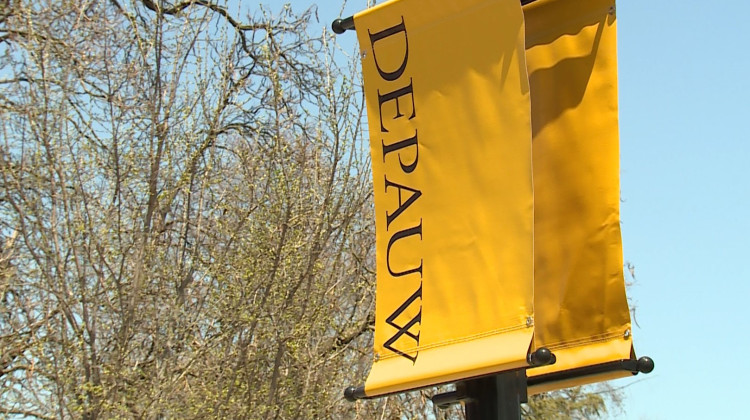
Education / March 26, 2024
Fafsa glitches leave students, colleges without crucial financial information.

Hazing incidents to be public under new Indiana law

WFYI 90.1 FM
6:00 pm - 6:30 pm, hd2 the point, xponential radio, 11:00 am - 11:59 pm.

Indiana Week in Review
Hoosier Democrats, Republicans and insiders talk candidly about issues, the Indiana Statehouse and everything in between on Indiana Week In Review from WFYI Public Media. Join host Brandon Smith and political experts as they dive into the debates shaping Indiana....
- Educational Resources
- WFYI Mobile App
- Follow @WFYI
- WFYI Passport
- Corporate Sponsorship
- Arts & Culture
- Follow @WFYINEWS
- Donate / Become a Member
- Update Payment Method
- Wills and Estate Planning
- Donate Your Car
- Gifts Of Securities
- Matching Gifts
- Help Center
- Contact WFYI
- Newsroom Staff
- WFYI Press Releases
- Donor Privacy Policy
- FCC Public Inspection Files
- Public Reporting

Student Financial Services
2024-2025 estimated cost of attendance.
Cost of Attendance (COA) is the estimated cost to attend one year of college. The components include tuition, fees, housing, food, transportation, books and supplies, personal expenses, and other costs, depending on individual choices.
These estimates do not reflect your actual bill as not all components are directly charged by the university. To review the direct charges you may see on your bill, please refer to the university's Official Notice of Student Charges.
Please note that the health insurance opportunity provided by Howard University is not a typical cost of attendance component. If a student is unable to secure insurance from an insurance provider of their choice, they may request a cost of attendance increase via the Office of Financial Aid.
Undergraduate Program
- Based on full-time enrollment per semester.
- Subject to change each academic year.
Graduate Programs
College of dentistry.
† - based on 11-month academic year (Fall/Spring/Summer)
- Based on full-time enrollment per semester.
- May vary based on the year in the program: Includes Books and Instruments
- Loan fees vary based on acceptance of Direct Federal Unsubsidized loan and Graduate PLUS loan credit decision
- May vary based on the year in the program: Includes Books and Instruments.
- Loan fees vary based on acceptance of Direct Federal Unsubsidized Loans and Graduate PLUS loan credit decision
- Loan fees vary based on acceptance of Direct Federal Subsidized and Unsubsidized Loans and Parent PLUS loan credit decision
College of Pharmacy
College of medicine.
- Loan fees vary based on acceptance of Direct Federal Unsubsidized loan and Graduate PLUS loan credit decision.
School of Law
School of divinity, school of business - mba | emba | omba, school of education - online human development.
Special Master's Programs Can Lead to Med School
Completing such a program can strengthen your med school application.
Special Master's Programs and Med School

Getty Images
For applicants that may have graduated years ago, had poor grades or taken an alternative career path before applying, the path to medical school is not so linear.
Getting into a U.S. medical school is no easy feat. With just around 40% of applicants matriculating, according to the Association of American Medical Colleges, those applying must set themselves apart and be as competitive as possible.
For some, the path to medical school is a straight trajectory from college, but for others the path is not as linear. Applicants may have graduated years ago, had poor grades or taken an alternative career path before applying. To be competitive enough to gain admission, many consider a postbaccalaureate program, commonly referred to as a postbac, or a special master's program.
Special master's programs provide graduate-level courses and appear as a separate GPA in students' applications. They last one or two years and are designed with premed students in mind.
Schools that offer them understand that most students will be enrolling to strengthen their application to medical school. As such, they design the programs to replicate aspects of med school, including having students take courses along with first-year med students and sit for national medical exams.
Here's what to know about special master's programs to help you decide if enrolling in one is the next best step in your path to medical school.
Type of Degree Earned
Each program offers a different master's degree at the completion of the requirements. Students commonly receive a master's in medical sciences or a master's in medical physiology.
Keep in mind that medical school admissions committees are most interested in the type of coursework – the difficulty level and whether courses are similar to those taken by a first-year medical student – rather than the specific degree obtained.
How Med School Admissions Committees View Special Master's Programs
When you submit your American Medical College Application Service, or AMCAS, application, your undergraduate and graduate grades will be cumulated as separate GPAs . Each medical school has its own system when considering these GPAs, but in general, if an applicant has a low undergraduate GPA, a high graduate GPA will help compensate for this.
Medical schools tend to recognize special master's programs as more rigorous and representative of medical school than, say, an MBA or online Master of Public Health degree. Therefore, a 4.0 from a special master's program will most reflect your academic capabilities as a future medical student.
Benefits of a Special Master's Program
Most special master's programs offer a variety of activities with the goals of premed students in mind. Many provide research opportunities, which is helpful if this is a potential area of weakness in your med school application. They may also have opportunities for clinical experience and volunteer work.
In addition, many provide MCAT preparation and advising to ensure all areas of an application are in check.
Downsides of a Special Master's Program
Special master's programs are not for everyone. The programs can be costly, with tuition at some universities upward of $50,000 per year.
Additionally, you have to apply to these programs, and although they cater to premeds that have lower GPAs, acceptance is not guaranteed.
Students must also consider the timing of applying. For instance, if the degree length for a special master's program is one year, you ideally want to submit your medical school application after having completed the program – to demonstrate your success. This means that you would not matriculate into med school until a year after completing the program.
In addition, you should have all of your medical school prerequisite courses completed before the special master's program. This is because the program will offer coursework that may not satisfy requirements for general science courses such as organic chemistry or physics.
Who Should Consider a Special Master's Program
Let's look at a couple of real-life examples of students for whom a special master's program is an ideal route.
One student completed college with subpar grades. He finished his medical school prerequisites, but his overall GPA was a 3.4. In his case, if he performs well in a special master's program, he can show medical schools his true academic capabilities as he completes courses alongside current medical students.
Another student finished a biology major but took 10 years off from school and ran a business . She has her prerequisites completed but lacks research and medical-related activities. A special master's program is ideal for her because she can provide admissions committees with a more recent GPA and also has the opportunity to bolster her extracurricular activities through the program.
Ultimately, enrolling in a special master's program can greatly enhance your application to medical school. If you're struggling to gain acceptance to med school or want to strengthen your academic record before applying, a special master's program may be the next best step for you.
Where Famous Docs Earned Medical Degrees

Tags: medical school , graduate schools , education , students
About Medical School Admissions Doctor
Need a guide through the murky medical school admissions process? Medical School Admissions Doctor offers a roundup of expert and student voices in the field to guide prospective students in their pursuit of a medical education. The blog is currently authored by Dr. Ali Loftizadeh, Dr. Azadeh Salek and Zach Grimmett at Admissions Helpers , a provider of medical school application services; Dr. Renee Marinelli at MedSchoolCoach , a premed and med school admissions consultancy; Dr. Rachel Rizal, co-founder and CEO of the Cracking Med School Admissions consultancy; Dr. Cassie Kosarec at Varsity Tutors , an advertiser with U.S. News & World Report; Dr. Kathleen Franco, a med school emeritus professor and psychiatrist; and Liana Meffert, a fourth-year medical student at the University of Iowa's Carver College of Medicine and a writer for Admissions Helpers. Got a question? Email [email protected] .
Popular Stories
Morse Code: Inside the College Rankings

Paying for Graduate School

Medical School Admissions Doctor

Best Graduate Schools

Law Admissions Lowdown

You May Also Like
Mba scholarships.
Sammy Allen April 4, 2024
15 Famous Fulbright Scholars
Cole Claybourn April 1, 2024
When to Expect Law School Decisions
Gabriel Kuris April 1, 2024
How to Decide if an MBA Is Worth it
Sarah Wood March 27, 2024

Choosing A Major for Med School
Andrew Bauld March 26, 2024

Handling a Law School Rejection Letter
Gabriel Kuris March 25, 2024

College Majors and MBA Admissions
Anthony Todd Carlisle March 20, 2024

Tips While Awaiting Med School Decision
Zach Grimmett March 19, 2024

2024 Best Grad Schools Rankings Coming
Robert Morse and Eric Brooks March 19, 2024

Tips for Aspiring Lawyers in High School
Gabriel Kuris March 18, 2024

Student Voices
Coming to HLS with a Ph.D.
There are many paths to law school. Increasingly, people choose to take a year or two off before pursuing their law degree. Many choose to use those years to gain work experience in banking or consulting, others work for non-profits or in public service roles . . . and some spend six years earning a Ph.D. in the humanities.
When my classmates, teachers, and law firm recruiters find out how I spent my time after undergrad, they often quickly ask why I “switched” to law after developing an expertise in Italian Literature. For me, coming to law school was not a sharp left turn. I had always planned on coming to law school. But when offered the opportunity to study literature I jumped at the chance. While in grad school, I ended up writing large portions of my dissertation about legal theory. In law school, I have many classmates with similar trajectories who have made a new intellectual home at HLS, drawing on their previous graduate education to inform how they think about the law.
Whether you see a close connection between your graduate studies and law school or not, don’t forget that the many skills that graduate school education provides are virtues in their own right—not to mention valuable tools that will serve you well in law school and in legal practice. While interviewing at law firms, I was nervous that hiring partners would view my academic trajectory with skepticism. I found, however, that most understood the value of having spent several years learning how to read carefully, write well, and research rigorously. At my position as a summer associate, many of my favorite days of work felt just like my favorite days of my Ph.D. program, working steadily to answer research questions and discussing my progress with my colleagues, all while feeling the pleasure of helping clients solve problems.
Kyle Skinner is a 2L from Jonesboro, GA, and is a first-generation student who graduated from Yale with both his B.A. and Ph.D. in Italian literature. Kyle is a member of the Board of Student Advisers, lead outside article editor for the Harvard Civil-Rights Civil-Liberties Law Review, a student attorney with the Prison Legal Assistance Program, and a policy editor on the Harvard Law & Policy Review. He is a mediocre cellist, has an unhealthy obsession with iced coffee, and has a collection of banned children’s books.
Filed in: Student Voices
Contact the J.D. Admissions Office
Website: hls.harvard.edu/jdadmissions
Email: [email protected]
Modal Gallery
Gallery block modal gallery.
Please turn on JavaScript in your browser It appears your web browser is not using JavaScript. Without it, some pages won't work properly. Please adjust the settings in your browser to make sure JavaScript is turned on.
College and graduate school scholarships for black women.
Senior Associate, JPMorgan Chase

If you've dreamed of attending college and are trying to figure out how to pay for your education, consider scholarships to help make your vision a reality . There’s no limit to the number of scholarships that you can apply for, and under most circumstances, this is money for college and graduate school that you won’t need to pay back.
While some people might operate under the assumption that you need to have a perfect grade point average (GPA) or be a star athlete to qualify for college and graduate school scholarships, there is a vast range of scholarships available for all kinds of applicants, all with different eligibility requirements.
In this article, we'll share a variety of scholarships available for Black women that have eligibility requirements that range from financial need to particular career aspirations. Keep reading to learn more.
Are there college and graduate school scholarships specifically for Black women?
There's a gamut of college and graduate school scholarships available to Black women, from school-provided scholarships to those offered by corporations, nonprofits, and other organizations. You can discover many of these opportunities through an online search, your guidance counselor, or even via word of mouth.
If you’re interested in applying for scholarships, you can get ahead of the process by researching scholarships and their eligibility requirements in advance and keeping track of the myriad of deadlines. Beyond applying to individual scholarships, you should consider filing the Free Application for Federal Student Aid (FAFSA ® ), which some scholarships utilize to award student's funds.
Is it worth applying for scholarships specific to Black women?
According to a 2022 report by the nonprofit Education Trust (PDF) , a year after completing their bachelor’s degree, Black women have an average of $38,800 in student loans, more than any other group analyzed in the report.
If we zoom out to all the federal student loans owed to the U.S. government, the same paper reports that women generally owe two-thirds of the student debt pie (PDF) .
While these statistics don’t reflect every Black woman’s story and won’t necessarily be yours, they do show how scholarships and grants for Black women may be helpful when it comes to paying for college and graduate school. Scholarships have the potential to reduce your higher education expenses and may help limit your student debt burden as you pursue higher education.
Scholarships for Black women pursuing undergraduate and graduate degrees
There are a range of scholarships available to Black women. Here’s a small sampling of options to consider applying for, but many more are available.
Scholarships for Black women pursuing STEM and medicine degrees
Development Fund for Black Students in Science and Technology
The Development Fund for Black Students in Science and Technology, a nonprofit formed in 1983 by Black professionals in STEM across the country, gives away nearly $30,000 annually through their endowment fund to students.
Take note, students who apply must be enrolled or have the intention to enroll in one of the approved 20 schools listed on the organization’s website. These schools range from Howard University to Spelman College.
- Amount: $3,000 per year (up to four years)
- GPA Requirement: 3.0
- ·Deadline: June 15, 2024 (application opens April 15, 2024)
Dashanna K. McNeil Memorial Scholarship
The Dashanna K. McNeil Foundation, which honors nurse Dashanna K. McNeil, awards three recipients various cash prizes annually as they pursue an associate, bachelor’s, or master's in nursing or a related field. All applicants must complete an essay question based on their education level.
- Amount: Past recipients have received awards ranging from $400 to $2,000
- GPA requirement: Not listed
- Deadline: 2024 deadline is yet to be announced
Graduate Fellowships for STEM Diversity
Graduate Fellows for STEM Diversity is an organization that assists scientists and engineers in pursuing a graduate-level education by providing fellowships and mentoring opportunities. According to the organization’s website, nearly 33% of their fellows are from underrepresented groups, and 61% of their fellows are female.
- Amount: $20,000
- GPA Requirement: Not listed
- Deadline: January 2025
Ford Motor Company Fund & NACME Scholarships 2024
The National Action Council for Minorities in Engineering, in conjunction with the Ford Motor Company, offers scholarships for minority students pursuing STEM-related careers in support of electric vehicles and advanced manufacturing industries.
- Amount: $5,000
- Deadline: July 8, 2024
Master of Business Administration (MBA) scholarships for Black women
The Consortium
The Consortium is a group of business schools with a shared mission to improve the representation of minority students in business schools, including Black women. Students can apply using The Consortium's application to a range of business schools, and through this process, The Consortium award hundreds of merit-based full-tuition fellowships.
Some requirements include having a four-year bachelor's degree from an accredited college or university, believing in The Consortium's mission of improving the representation of minorities in management, and being a U.S. citizen or Deferred Action for Childhood Arrivals (DACA) recipient.
- Amount: Full tuition to 70% of applicants
- Deadline: 2025 deadline is yet to be announced
Selected Professions Fellowship
The American Association of University Women (AAUW) promotes the education of women and girls. Its Selected Professions Fellowship offers awards specifically to women of color who are pursuing an MBA, law degree, or medical degree.
- Deadline: November 30, 2024
Scholarships for Black women pursuing law degrees
The Herbert Lehman Education Fund Scholarship
The Herbert Lehman Education Fund Scholarship provides awards to undergraduate and law school students with financial need who plan on attending an accredited three-year law school full-time and have a solid academic record. The Legal Defense Fund sponsors the award, which promotes racial justice for Black Americans. Students must also demonstrate financial need. The award honors Herbert Lehman, a former governor and U.S. senator from New York who played a role in the civil rights movement.
- Amount: $3,000 a year (for four years)
- GPA Requirement: None
- Deadline: April 1, 2024
The Earl Warren Scholarship
The Legal Defense Fund also sponsors the Earl Warren Sponsorship. This award is in memoriam of the Honorable Earl Warren, the 14th United States Chief Justice, who helped end school segregation in the U.S. The scholarship welcomes rising law students who share a commitment to racial justice and have potential for training as civil rights and public interest attorneys.
- Amount: $45,000 ($15,000 per year for three years)
- Deadline: May 1, 2024
Scholarships for Black women pursuing careers in social work
The Laurel House Social Work Racial Equity Scholarship
The Laurel House is an organization that helps promote access to mental health care for people of color. Its Social Work Racial Equity Scholarship provides scholarships to students pursuing a graduate degree in social work. Students must be Connecticut residents, Black or Latino, and enrolled in a Master of Social Work program in Connecticut or New York. The candidate must also demonstrate they need financial aid and secure a letter of recommendation.
- Amount: $10,000 (first place), $1,000 (second place), $500 (third place)
- GPA requirement: None
- Deadline: May 15, 2024
Scholarships for Black women returning to college
Young Black Women Scholars Program
The Young Black Women Scholars Program provides priority consideration to women, including Black women, who are interested in completing their college degree. This can include women who've left college and are returning to complete their degree or those who are attending college for the first time.
- Amount: Varies
- GPA Requirement: 2.5
- Deadline: May 14, 2024
Additional scholarships for Black women
If you're a Black woman who isn't necessarily studying STEM, law, or business, there are still organizations that want to aid in your higher education journey. Here's a list of other scholarships to consider applying for should you meet the eligibility requirements:
- Fund for Education Abroad Scholarship
- Judith McManus Price Scholarship
- Sachs Foundation Undergraduate Scholarship
- Scholarship Institute's Annual Women's Leadership Scholarship
Final thoughts
Since filling out a scholarship application doesn’t mean you’ll necessarily receive the scholarship funds, you may want to consider applying for several scholarships each year. There are other routes to seek help to pay for college or graduate school, too.
If you’re currently employed, find out if your company has any tuition assistance programs. If you need financial help beyond scholarship funds, consider sitting down with your school’s financial aid office to seek expert guidance on how to navigate paying for college or graduate school.

Change to alternate diploma may let more students graduate high school

A change to Indiana’s law governing the alternate diploma will let more students with disabilities graduate high school. The change will affect school districts throughout the state, but it will have the biggest impact in some of the state’s smallest schools.
Indiana’s alternate diploma is meant for students who have significant cognitive disabilities. They were first available to the class of 2023, but organizations like the Indiana School Boards Association said they were not fully utilized because of a law that restricted their use.
Before the law was changed, no more than 1 percent of a graduating class could graduate with the alternate diploma. That meant some schools with very small class sizes couldn’t count any students who earned an alternate diploma toward their graduation rate.
The ISBA urged lawmakers to change the law this year because it, “unfairly penalizes school corporations with small graduating classes,” according to a document shared by the association.
READ MORE: State lawmakers share their thoughts on this year's education bills
Join the conversation and sign up for the Indiana Two-Way. Text "Indiana" to 765-275-1120. Your comments and questions in response to our weekly text help us find the answers you need on statewide issues, including our project Civically, Indiana and our 2024 legislative bill tracker .
Lawmakers listened. The change was included as part of HEA 1243 . Starting July 1, small schools can allow one student to graduate with an alternate diploma, even if that student makes up more than 1 percent of the graduating class.
The effect on small schools and their students could be significant. According to a Ball State University study , 20 percent of Indiana’s school corporations had fewer than 1,000 students in 2022. Some of those corporations were not able to award an alternate diploma under the previous law.
Next year, students at those schools who would not have been able to graduate last year could receive their high school diplomas under the new provision.
Kirsten is our education reporter. Contact her at [email protected] or follow her on Twitter at @kirsten_adair .

IMAGES
VIDEO
COMMENTS
The deadline for submission of all materials is December 15. Applicants to the Ph.D. in Law program must complete a J.D. degree at a U.S. law school before they matriculate and begin the Ph.D. program. Any questions about the program may be directed to Gordon Silverstein, Assistant Dean for Graduate Programs, at [email protected].
The Coordinated JD/PhD Program is designed for students interested in completing interdisciplinary work at Harvard University and is founded on the belief that students' legal studies and their arts and sciences graduate studies can be mutually enriched through this pursuit. Students completing the coordinated program receive a JD from ...
Here are the 2023-2024 Best Law Schools. Stanford University. Yale University. University of Chicago. University of Pennsylvania (Carey) Duke University. Harvard University. New York University.
The Doctor of the Science of Law (JSD) is the Law School's most advanced law degree, and is considered a doctorate equivalent to a Ph.D. It is designed for those interested in becoming scholars and teachers of law including interdisciplinary approaches to law. Study toward the degree is open only to a small number of exceptionally well ...
Yale University, Law School. PhD in Law. Yale University's Law School ranks first in the nation, with its 20 legal clinics offering an immersive experience for students. This PhD program has a purely academic focus. To qualify for admission, you'll need to already have a JD (Juris Doctor) degree.
The Graduate Program attracts lawyers of demonstrated intellectual and academic excellence from all over the world. The LL.M. and S.J.D. programs expose students to American modes of legal education (which emphasize critical thinking and self-inquiry) as well as to substantive law, and enhance our students' ability to do advanced scholarly work.
The Doctor of Juridical Science (S.J.D.) is Harvard Law School's most advanced law degree, designed for aspiring legal academics who wish to pursue sustained independent study, research and writing. In recent years we have created a vibrant intellectual community of young scholars from around the world, most of whom will secure teaching ...
Doctor of Juridical Science (S.J.D.) Harvard Law School. Harvard Law School's most advanced law degree, the Doctor of Juridical Science (S.J.D.) is modeled on the very best Ph.D. programs in other disciplines, and is designed for aspiring legal academics who, through sustained independent study, research and writing, work to produce a ...
Cornell Law School Myron Taylor Hall Ithaca, NY 14853-4901. Information for: Current Students ; Alumni; Quick Links. Academics; Admissions; Careers; Life at Cornell Law; News; ABA Required Disclosures; About CLS; Contact; Law Library; Legal Information Institute; Facebook Instagram Twitter Linkedin ©2024 Cornell University
Ph.D. Berkeley Law's Jurisprudence and Social Policy Program offers a unique interdisciplinary graduate program leading to Ph.D. degrees for students interested in the scholarly study of legal ideas and institutions, policy analysis and applied research, and other areas. Learn more here.
The PhD in Law program prepares students who have earned a JD from an American Bar Association accredited law school to enter law teaching or other careers that require a scholarly mastery of law. The program is designed to provide a broad foundation in the canonical texts and methods of legal scholarship and to support students in producing original scholarship in the form of a dissertation.
List of Harvard Law School graduate programs by size and degree. Browse popular PhD programs at Harvard Law School. Find on-campus and online graduate programs at Harvard Law School.
The maximum number of law school credits that may be counted toward the PhD in philosophy is the greater of: (i) 12 quarter units; or (ii) the maximum number of units from courses outside the department that PhD candidates in philosophy are permitted to count toward their degree under general departmental guidelines or in the case of a ...
Program Overview Vanderbilt Law School's Ph.D. Program in Law and Economics is unlike any other. Dual-degree students pursue a J.D. and a Ph.D. concurrently in a fully integrated curriculum that combines economic theory and methodology with the study of law. The program is designed so that students complete both degrees
Step 1: Learn About Legal Jobs and Careers. Someone considering a career as a lawyer should first conduct research on the legal profession. The Law School Admission Council's "Discover Law" portal ...
The Ph.D. in Law is a doctoral program offered in conjunction with Yale University's Graduate School of Arts and Sciences. It is designed to prepare J.D. graduates for careers as legal scholars and teachers through coursework and the production of a substantial body of original academic research and writing. The program is only open to students ...
The Doctor of Juridical Science (SJD) in Environmental Law offered by Pace University's Elisabeth Haub School of Law is a graduate research degree intended to prepare legal scholars to research, publish and teach in the field of environmental law, whether in the United States or elsewhere in the world.
Edinburgh Law School can offer expert supervision across an exceptional range of subject areas for PhD study. A PhD at Edinburgh Law School involves undertaking independent research, culminating in the submission of a thesis of up to 100,000 words, which should be an original piece of work that makes a significant contribution to knowledge in the field of study and contains material worthy of ...
The Law School offers a Coordinated JD/PhD Program with the Harvard Graduate School of Arts and Sciences (GSAS). Students in the program earn a JD and a PhD, allowing them to integrate the study of law with their doctoral studies in history. Several members of the Harvard History Department work in areas related or highly relevant to the law.
UCL Laws has one of the most selective MPhil/PhD programmes in the UK, and produces graduates of internationally recognised quality. Ranked the top UK Law institution for research quality in the most recent Research Excellence Framework (2021), UCL Laws attracts leading figures in the field to our extensive programme of events, informing debate on critical legal issues.
Enhance your journalism skills and deepen your understanding of environmental, agriculture and food systems, or animal law and policy with a Media Fellowship at one of the nation's top environmental law schools. Every summer, Vermont Law and Graduate School's Environmental Law Center brings together legal educators, policymakers, practicing ...
1 XIAOYU ZHANG 164 Chelsea St., South Royalton, VT 05068 802-831-1142, [email protected] EDUCATION VERMONT LAW & GRADUATE SCHOOL, S. ROYALTON, VT LL.M. Fellow, May 2017 Relevant Coursework: Environmental Law, Climate Change, Energy Law and Policy, Water Quality
A change to Indiana's law governing the alternate diploma will let more students with disabilities graduate high school. The change will affect school districts throughout the state, but it will ...
Cost of Attendance (COA) is the estimated cost to attend one year of college. The components include tuition, fees, housing, food, transportation, books and supplies, personal expenses, and other costs, depending on individual choices. These estimates do not reflect your actual bill as not all components are directly charged by the university.
Special master's programs provide graduate-level courses and appear as a separate GPA in students' applications. They last one or two years and are designed with premed students in mind. Schools ...
There are many paths to law school. Increasingly, people choose to take a year or two off before pursuing their law degree. Many choose to use those years to gain work experience in banking or consulting, others work for non-profits or in public service roles,… and some spend six years earning a Ph.D. in the humanities.
The scholarship welcomes rising law students who share a commitment to racial justice and have potential for training as civil rights and public interest attorneys. Amount: $45,000 ($15,000 per year for three years) GPA Requirement: None. Deadline: May 1, 2024.
Contact her at [email protected] or follow her on Twitter at @kirsten_adair. A change to Indiana's law governing the alternate diploma will let more students with disabilities graduate high school. The change will affect school districts throughout the state, but it will have the biggest impact in some of the state's smallest schools.